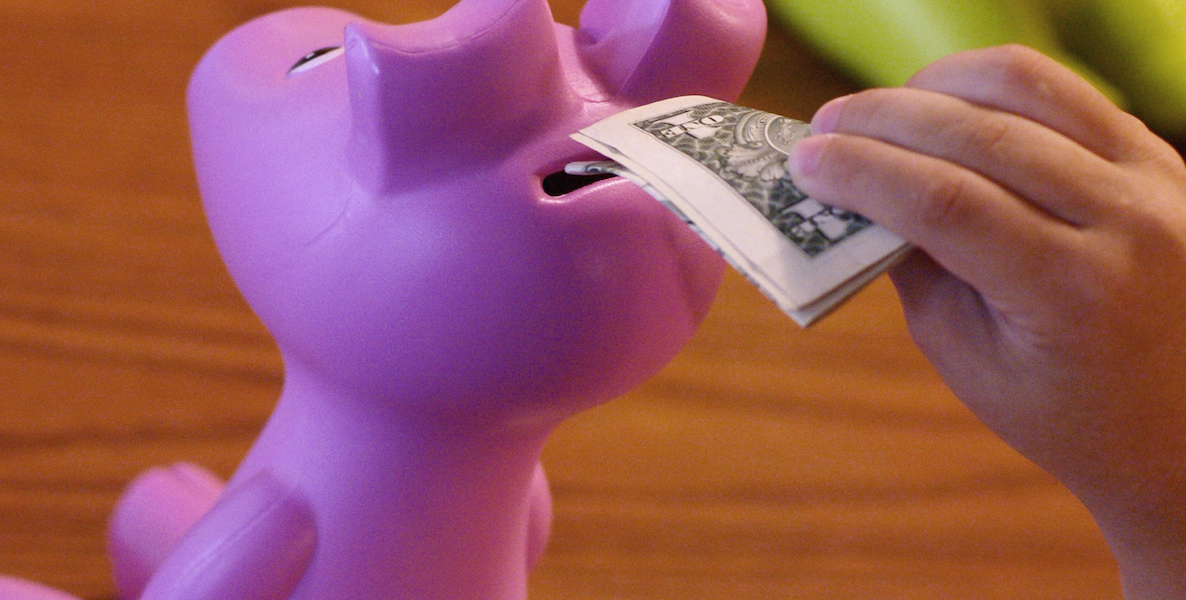In 1995, Paul Born was running a large nonprofit in Ontario, Canada, tasked with trying to help people in the region who were poor. By most measures, it was a resounding success: Community Opportunities Development Association had helped start 1,200 small businesses with previously unemployed people, 85 percent of which were successful; it owned a bank that offered loans and accounts that helped raise the fortunes of people who were poor; found jobs for folks, and assisted children. “We did everything right,” Born recalls.
The organization was so successful, in fact, that the United Nations declared it to have one of the best practices in the world, and sent a delegation to Canada to give Born and his colleagues an award.

Prefer the audio version of this story? Listen to this article in CitizenCast below:

There was only one problem, according to Born: They didn’t deserve it.
“We had done our own analysis of our work over the last 20 years, and poverty had gone up in that time, not down,” Born says. “How do you accept an award when the outcome you’re trying to occur hasn’t happened? If I was a business leader, I’d get fired, not rewarded.”
“Ending poverty isn’t about helping the poor,” Born says. “It’s about creating a great community. If you want to be successful in your community, you need to have very few poor. If you want to have a quality of life for you and your children, you have to have very few poor. It’s as simple as that.”
Born walked off the stage without accepting the award, and promptly quit his job. Then he raised several million dollars to pursue an even grander mission than the earlier one: “I don’t want to help the poor, to have better poor. I want there to be less poor.” And this time, he has succeeded. Since 1996, the organization that became the Tamarack Institute has led an effort across Canada that lifted 202,872 families out of poverty in seven years. That figure is from five years ago; since then, the work has continued, but Born says they have stopped keeping track.
![]()
“What we figured out was that the whole community, together, doing just a little better is way better than one organization doing really well,” Born says. “We believe that we all have a part to play. Government has an important role; business has an important role; as do the people who are living in poverty and the people who are helping them. All we have to do to end poverty is all change a little bit. What if we all just change 10 percent? What is the 10 percent we need to change?”
Born started this work in the Waterloo region, a high tech but also high poverty region outside Toronto. In 1996, he convinced the region’s leaders to launch Opportunities 2000, a plan to get 2,000 people out of poverty, and keep anyone else from falling into it, by the year 2000. He garnered the support of the McConnell Foundation, the largest private foundation in the area; large private companies like Royal Bank and Brock Solutions; and mayors of all the local cities. Together they created a plan to enact relatively small, but vitally important, changes in the community. By the time Y2K rolled around, they had reached their goal—and McConnell gave Tamarack $10 million to spread the work to cities around Canada. Eventually, 388 cities signed on to reduce poverty through a Tamarack “Common Agenda”—about 98 percent of Canadian cities.
“It’s the golden age of poverty reduction in Canada,” Born says. “We’re going to end poverty as we know it, in 10 years. Isn’t it great?”
![]()
Born acknowledges a truism we can’t ignore: Canada is inherently different than the United States in its national social policies that help make life easier for residents, from more affordable education to less costly healthcare. But five years ago, Tamarack ventured south, to work with the United Way of Central Iowa, where in the last two years, 25,000 residents have been lifted out of poverty—a 2 percent reduction in the region’s poverty rate. Like Philadelphia, Central Iowa is in the midst of a renaissance: A destination for millennials, job growth, immigration. But it, too, has a competing struggle, with 33 percent of its population living below poverty.
United Way of Central Iowa President Elisabeth Buck says the effort began with a day-and-a-half long summit with 100 people in attendance: 25 who are experiencing poverty; 25 from nonprofits; 25 business leaders; and 25 from government and education. First they defined their community’s assets and opportunities. Then they looked at the data about poverty in their community, from the extreme poor, like homeless people, whom everyone could identify; the very poor, who work also need public assistance to get by; and the poor, who maybe work full time buy straddle the poverty line anyway, the biggest group of whom are single parents. They ended by forming eight working groups around various topics, including transportation, childcare, hunger and reentry. And then they set to work, eventually drawing on 2,000 people around the region to weigh in on the issues.
The changes they made in Iowa were concrete and often simple: Food providers changed pantry hours and launched three mobile food vans to accommodate folks who couldn’t make it during regular hours; the state legislature—encouraged by business leaders—increased the dollars spent to support child care assistance for working families to make it easier for them to both make more money and make it to work, and repealed a law that revoked drivers licenses for drug offenses, even if they were not driving related, so returning citizens could get jobs in rural Iowa; they launched a 24/7 translation service to improve communications between landlords and non-English speaking tenants to clear up confusion that often led to evictions.
“It’s the golden age of poverty reduction in Canada,” Born says. “We’re going to end poverty as we know it, in 10 years.”
This illustrates the crux of Tamarack’s approach, which starts from the understanding that one answer is not the same for every community; finding what works requires finding out what the unique problems, and unique solutions, are for each city—something that can only be determined by the people in that city itself.
“When we were able to come together, everyone came out with a common goal,” Buck says. “Everyone’s plans, from the Chamber of Commerce to governments, integrated the goal. We still have tons of work to do, but the momentum is there now, and we have new people coming to the table all the time.”
Tamarack as a “human systems problem,” as opposed to just an economic problem. In Philadelphia, our 25 percent poverty rate is our biggest collective failure, and nationally we have increasingly begun to talk about capitalism itself as a failure. But Born contends that is not, strictly speaking, true. “We have an amazing economic system in North America,” he says. “It works for 85 percent of our population in Canada, for 75 percent of your population in Philadelphia. The system is not broken for most people. But if 20 percent of the population has been poor for a very long time, then we have to figure out how to address an economic and social system—a ‘human system’—that lets us help people in different ways.”
![]()
The son of Mennonite refugees in Canada, Born speaks with a religious zeal that combines both optimism and anger and comes across as almost joyful. (And, indeed, he interrupts himself to point out, over the phone, that while his words may sound angry, he is actually smiling when he talks.) He is disdainful of people who think, as in Biblical terms, that there will always be the poor, and of the lopsided way that areas of great wealth seem to be powered by areas of great poverty. “That’s so stupid,” he says. ”Everyone would agree that an economy that allows people to work full time and be poor, is a brokenness in our economy. Henry Ford told us that when he said, ‘If they can’t afford to buy our cars, I’m not paying them enough.’”
In his years of doing this work, Born has honed the process he brings to communities to five key points everyone must agree to:
- It’s about less poor, not better poor.
- The strategies need to be comprehensive: You can’t create better housing, for example, without better jobs; can’t do jobs without better mental health and addiction treatment; can’t bring people out of addiction without better housing.
- You have to acknowledge your assets: In Philadelphia, that means looking at the 74 percent of the population that is not living in poverty, taking lessons from them and then aiming for the lowest hanging fruit, where we can find the most success: The working poor. “How can we move this thing seven points?” he asks. “And then five more?”
- It has to be multi-sector. For a business to agree to pay a living wage, for example, it needs skilled workers—something the local community college or school system can provide. It also needs employees who are living in a way that ensures they are not going to miss a lot of work—social services that government and nonprofits can help with.
- Most important, participants have to be willing to learn and change. “We have to learn our way out of poverty, by changing together,” Born says. “We say, what if we all work together—on a common agenda—agree to a shared measurement, and then start working in mutual reinforcing ways? Those cities around the world that can do that effectively, are the ones who can reduce poverty.”
It seems almost simple. But it requires something Philadelphia has tended to lack: The will and the leadership to gather different sectors into a room to tackle an issue together (except, of course, when it came to wooing Amazon).
Mayor Kenney’s approach to Philly’s biggest scourge is education reform; but better schools don’t equate to more jobs, or more affordable housing, or better transportation. For poverty more broadly, the City’s Office of Community Empowerment and Opportunity has its Shared Prosperity plan, mostly repackaging of existing government programs. City Council this spring released a poverty report with strategies culled from other cities; but it is for, and was generated by Council, not through a community-wide effort. No one from the business community has stepped up with a rallying cry to rally the troops. Compare that to what communities all over Canada have done, producing dedicated city or region-wide plans, developed as a collective, that specifically target poverty reduction, like End Poverty Edmonton, whose tagline says it all: “Together, we can end poverty.”
There is one glimmer of hope, though. Bill Golderer, the United Way of Southeastern Pennsylvania’s new president, has made tackling poverty his raison d’etre, and has said he is looking to host a citywide convening in 2020 akin to the 2,000-person summit that led to A Better Chicago, that city’s education platform. That is a starting point that could result in the sort of collective action achieved in Canada and Iowa, to push our city in the right direction—away from poverty.
The best part about that? Everyone benefits.
“Ending poverty isn’t about helping the poor,” Born says. “It’s about creating a great community. If you want to be successful in your community, you need to have very few poor. If you want to have a quality of life for you and your children, you have to have very few poor. It’s as simple as that.”
The Citizen is one of 19 news organizations producing Broke in Philly, a collaborative reporting project on solutions to poverty and the city’s push towards economic justice. Follow the project @BrokeInPhilly.
Photo via Flickr






